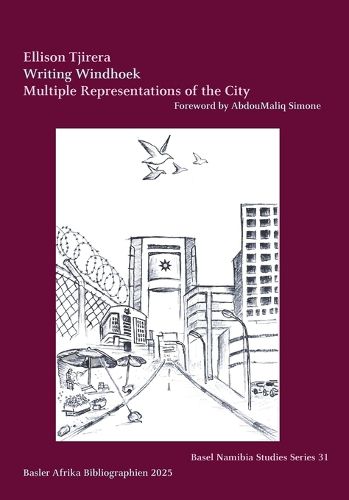Readings Newsletter
Become a Readings Member to make your shopping experience even easier.
Sign in or sign up for free!
You’re not far away from qualifying for FREE standard shipping within Australia
You’ve qualified for FREE standard shipping within Australia
The cart is loading…






This title is printed to order. This book may have been self-published. If so, we cannot guarantee the quality of the content. In the main most books will have gone through the editing process however some may not. We therefore suggest that you be aware of this before ordering this book. If in doubt check either the author or publisher’s details as we are unable to accept any returns unless they are faulty. Please contact us if you have any questions.
"Small" cities have something to offer in terms of theoretical resources and re- newing our understanding of urban life. In other words, all cities do matter and are therefore worthy of drawing from. Condemning "insignificant" cities to oblivion is a travesty that will leave urban studies poorer. Importantly, no city is reducible to one register in the representation of its essence. In Writing Windhoek
Ellison Tjirera makes an attempt to revivify the Capital city of Namibia and treat it as an idea meriting a closer examination and reflection. In illuminating the essence of Windhoek's cityness, this book traces its history of spatial segregation, an imprint that continues to define contemporary city life. The cultural memory of Windhoek is analysed as a way of accessing what is otherwise a not so obvious strand through which to understand a city that has escaped a sustained scholarly rendition. In his further layering of the city, Tjirera provides a portrait of
Windhoek through urban fantasies, regimes of the legal, and how migration is implicated in shaping social heterogeneity and concatenations of various urban rhythms. Ellison Tjirera teaches Sociology at the University of Namibia, Windhoek. For over a decade as a researcher, Tjirera has been associated with the Windhoek-based think tank the Institute for Public Policy Research (IPPR) as well as the Ministry of Gender Equality and Child Welfare. He holds a Ph.D. in Sociology from the University of the Witwatersrand, Johannesburg. His academic interests include urban studies, social movements, gender studies, governance and post-apartheid societies.
$9.00 standard shipping within Australia
FREE standard shipping within Australia for orders over $100.00
Express & International shipping calculated at checkout
This title is printed to order. This book may have been self-published. If so, we cannot guarantee the quality of the content. In the main most books will have gone through the editing process however some may not. We therefore suggest that you be aware of this before ordering this book. If in doubt check either the author or publisher’s details as we are unable to accept any returns unless they are faulty. Please contact us if you have any questions.
"Small" cities have something to offer in terms of theoretical resources and re- newing our understanding of urban life. In other words, all cities do matter and are therefore worthy of drawing from. Condemning "insignificant" cities to oblivion is a travesty that will leave urban studies poorer. Importantly, no city is reducible to one register in the representation of its essence. In Writing Windhoek
Ellison Tjirera makes an attempt to revivify the Capital city of Namibia and treat it as an idea meriting a closer examination and reflection. In illuminating the essence of Windhoek's cityness, this book traces its history of spatial segregation, an imprint that continues to define contemporary city life. The cultural memory of Windhoek is analysed as a way of accessing what is otherwise a not so obvious strand through which to understand a city that has escaped a sustained scholarly rendition. In his further layering of the city, Tjirera provides a portrait of
Windhoek through urban fantasies, regimes of the legal, and how migration is implicated in shaping social heterogeneity and concatenations of various urban rhythms. Ellison Tjirera teaches Sociology at the University of Namibia, Windhoek. For over a decade as a researcher, Tjirera has been associated with the Windhoek-based think tank the Institute for Public Policy Research (IPPR) as well as the Ministry of Gender Equality and Child Welfare. He holds a Ph.D. in Sociology from the University of the Witwatersrand, Johannesburg. His academic interests include urban studies, social movements, gender studies, governance and post-apartheid societies.